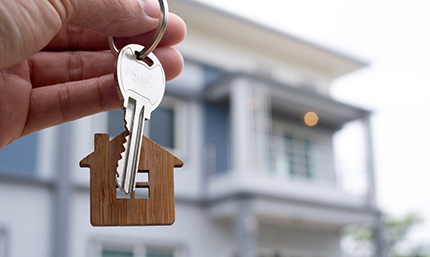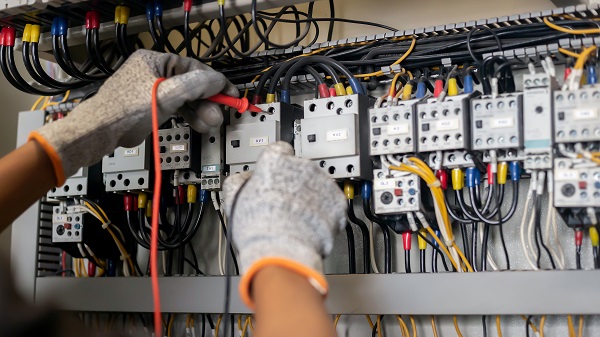How to Score Big Buying a House on Auction navigating the world of property auctions can feel like entering a whole new universe. Excitement buzzes in the air. The gavel is poised to strike. Bidders clutch paddles. And you? You’re on the hunt for a house on auction that offers outstanding value. With the right preparation, savvy strategies, and a dash of courage, you can land a fantastic deal and transform an auction find into the home of your dreams. Below is an exhaustive roadmap—complete with professional insights, unconventional terminology, and a cheerful, informative tone—to guide you every step of the way.

Why Choose a House on Auction?
Buying a house on auction can unlock unparalleled bargains. Traditional real estate listings often carry markups to cover agent fees and lengthy negotiations. Auctions, on the other hand, offer:
- Transparency: All competitive bids are in the open, promoting fair pricing.
- Speed: You avoid protracted offer-counteroffer dramas. The deal closes swiftly.
- Potential Discounts: Motivated sellers—perhaps in foreclosure—often set starting bids below market value.
- Market Fever: The adrenaline rush of live bidding can prompt impulse purchases well below retail price.
However, auctions require confidence. You must commit quickly, often putting down a non-refundable deposit on the spot. Approach with knowledge, not bravado, and you’ll maximize the advantages.
Types of Property Auctions
Understanding auction formats primes you for success:
Absolute Auctions
In an absolute auction, the property sells regardless of price. If your pre-auction research suggests a starting bid well below fair market value, this can yield a steal.
Reserve Auctions
Sellers set a hidden reserve price. If bidding fails to meet that threshold, the property may not sell. Buyers must assess whether the opening bid is likely to reach reserve, then bid accordingly to avoid disappointment.
Online Auctions
Digital platforms—like Auction.com or Hubzu—have widened access to house on auction events. You can bid remotely, but must adapt to fast-paced virtual dynamics and ensure your internet connection doesn’t fail you.
Government or Bank Foreclosure Auctions
These sales come with distinct rules: no contingencies, immediate deposits, and “as-is” conditions. Foreclosure auctions can offer deep discounts, but also heightened risk. Rigorous due diligence is essential.
Pre-Auction Homework: Research & Analysis
Before signing up for a bidder’s paddle, invest time in:
- Comparative Market Analysis (CMA)
Compile recent sale prices of similar properties in the precinct. This provides a reliable valuation anchor. - Title Search
Uncover liens, easements, or covenants that could complicate ownership. A clean title is non-negotiable. - Auction Terms & Conditions
Each auction house has unique rules: deposit amounts, closing timelines, and buyer premiums. Review meticulously. - Property History
Investigate past listings, price reductions, and any litigation. Sometimes, the most important insights hide in footnotes. - Neighborhood Assessment
Quality of schools, crime rates, future zoning changes—these intangible factors significantly impact long-term value.
This comprehensive approach transforms guesswork into strategic bidding, minimizing unwelcome surprises.
Inspecting and Due Diligence
A house on auction usually sells “as is.” There’s no last-minute renegotiation for repairs. Hence:
- Professional Inspection: Hire a qualified inspector to evaluate structural integrity, roofing, plumbing, electrical systems, and hidden pests.
- Specialist Reports: For older homes, obtain lead paint, asbestos, or mold assessments. For rural properties, check well water quality.
- Renovation Estimates: Create a rough budget for needed upgrades. Factor this into your maximum bid.
Armed with accurate cost projections, you can bid competitively while safeguarding your profit margin.
Setting Your Budget and Securing Finance
Without financing in place, even a winning bid can collapse. Follow these steps:
- Pre-Approval
Obtain a mortgage pre-approval or line of credit from your lender. This clarifies your borrowing capacity and demonstrates seriousness to auctioneers. - Deposit Preparation
Most auctions require 5–10% of the purchase price immediately after winning. Have funds liquid—no post-auction delays. - Budget for Buyer’s Premium
Auction houses often charge a buyer’s premium (2–5% of hammer price). Include this in your financial calculations. - Contingency Reserve
Set aside 5–10% extra for unforeseen repairs or closing costs. This margin of safety prevents cash flow crunches.
With financing secured and budgetary boundaries established, you can bid confidently without fear of overstretching.
Legal Prerequisites and Pitfalls
Legal smoothness is critical:
- Review the Contract of Sale
Understand all covenants, timeframes, and conditions. Ensure you can comply with settlement dates to avoid forfeiture. - Solicitor or Conveyancer
Engage a legal professional experienced in auction sales. Their review of the title, auction terms, and settlement process protects you from adverse clauses. - Tax Implications
Factor stamp duty and other taxes into your cost structure. In some jurisdictions, auction purchases may attract variations in tax rates.
Proper legal guidance turns labyrinthine paperwork into a straightforward pathway to ownership.
Auction Day Tactics
When auction day arrives, your success depends on poise:
- Arrive Early
Register, collect your paddle, and scope the competition. Familiarize yourself with the auctioneer’s cadence. - Stay Calm and Cheerful
Keep your tone light. A smiling demeanor can deter aggressive bidding. Confidence, not aggression, wins. - Start with a Test Bid
Raise your paddle early to establish presence. This can discourage underprepared bidders. - Bid in Increments
Avoid announcing your maximum too soon. Incremental bidding conceals your ceiling and can coax others to exhaust their budgets first. - Watch Your Competition
Observe body language and bidding patterns. This insight helps you predict whether a rival is nearing their limit. - Know When to Pass
If bidding surpasses your maximum, resist the urge to chase. Emotional overspend is a leading cause of post-auction regret.
A disciplined approach transforms each paddle raise into a calculated move.
Post-Auction Protocols
Victory at the hammer is just the beginning:
- Immediate Deposit
Pay the specified deposit on the spot. Failure to do so can void the sale. - Settlement Period
Confirm the settlement date—often 30–60 days. Align your finances and legal paperwork accordingly. - Final Inspections
Conduct a last walkthrough to ensure no major issues emerged since the auction. - Transfer of Title
Your solicitor will handle the final transfer. Ensure utilities and insurance are activated on settlement day.
Follow these steps systematically to convert auction success into homeownership bliss.
Common Pitfalls to Avoid
Even seasoned bidders stumble if they’re not vigilant:
- Overleveraging: Bidding beyond your means risks financial distress.
- Skipping Inspections: “What you don’t see can hurt you.” Always inspect.
- Ignoring Market Dynamics: Failing to recognize price surges or drops can lead to overpayment.
- Underestimating Fees: Stamp duties, buyer’s premiums, and legal fees add up quickly.
- Emotional Bidding: Attachment to a property often leads to irrational overspending.
By steering clear of these traps, you’ll protect both your wallet and your sanity.
Conclusion: From Auction Floor to Dream Doorstep
Scoring big at a house on auction requires meticulous planning, confident execution, and a dash of boldness. Begin with rigorous research. Secure your financing. Perform thorough inspections. And—when the gavel falls—bid strategically.
The path from auction floor to dream doorstep may be lined with fast-paced bids and legal paperwork, but the payoff—an exceptional property acquired at an exceptional price—is well worth the journey. Embrace the auction process with cheer, professionalism, and an unwavering commitment to maximizing business potential—and watch your property aspirations become reality.





More Stories
What is Design Psychology and How Will it Help Me?
Energy Efficient House Design – Using Thermal Performance Assessment Techniques
All About Architectural Drawing and Advantages of Outsourcing 2D and 3D Floor Plan Design